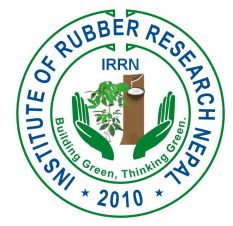
Message from president
Dear Ladies and Gentlemen,
As we all know, preservation of environmental health and judicious utilization of renewable resources are paramount in today’s high-productivity, high-efficiency, fast-paced lifestyle. These issues are even more important in developing countries where resources are limited, technology is inadequate or unaffordable, and the primary issue is subsistence. Nepal is one such a developing country.
The nation of Nepal has a heritage which is both demographically and culturally rich, but geopolitical constraints have long perpetuated a vicious cycle of economic stagnation in Nepal. Several of us, the Nepalese expatriates, who have been in the United States for many years, feel that the time has come for us to assemble a team of diverse experts to “give back” to our motherland the technical expertise to utilize marginal natural resources and help uplift the downtrodden.
To this end, we have formed Institute of Rubber and Jatropha Research-Nepal (IRJR-Nepal), registered with Internal Revenue Service, USA as a 501 (c) (3) charitable non-profit organization. This newly established institute is dedicated to environmental protection and quality-of-life improvement of Nepali farmers via promotion of an industrial crop (natural rubber) and an energy crop (Jatropha or Sajiban). The vast potential of these two currently underutilized crops is expected to generate sustainable income through research and outreach.
Today, Nepal is producing natural rubber raw materials to fulfill only 2% of demand while Jatropha production remains yet to be commercialized. By promoting commercial Jatropha production, we hope to improve the biodiesel sector in Nepal by cultivating Jatropha in marginal lands while conserving the erodible soil. Our near-term goal will be to achieve 15,000 hectares each of commercial rubber and Jatropha production in Nepal by 2030. I expect our institute will acquire sufficient funding and other logistical support from various donors, collaborative partners, government stakeholders, and farmers to help improve the livelihoods of Nepalese subsistence farmers.
To conclude, welcome and thank you in advance for your cooperation.
Sincerely,
Prof. Megha N. Parajulee, Ph.D.
President, IRJR-Nepal
